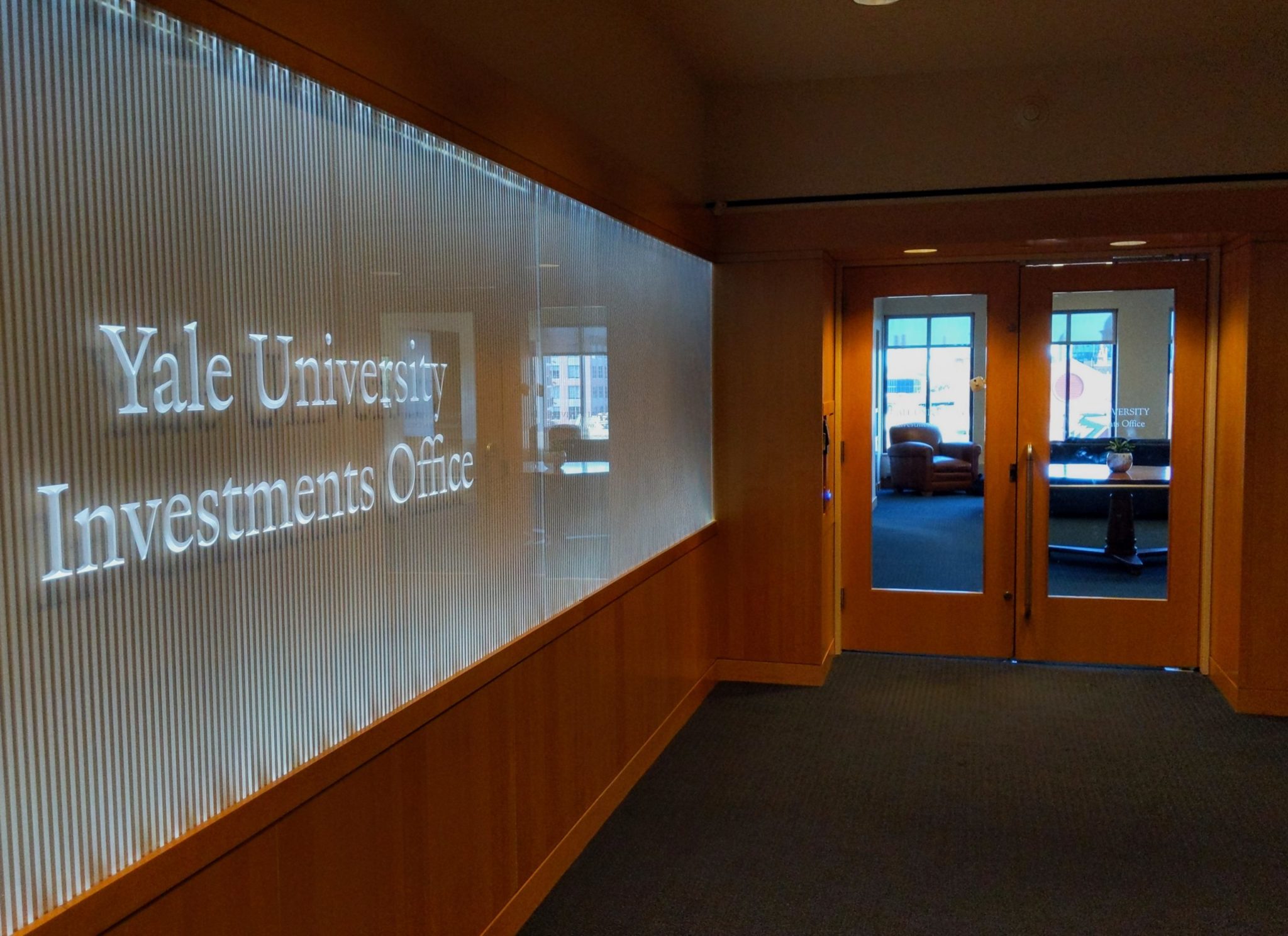Yale’s endowment falls from silver medal position as University of Texas surges ahead
Even as Yale’s endowment reached a record high in 2021, University of Texas’ has surpassed it in size and may top Harvard’s to become the largest university endowment in the United States in the 2022 fiscal year.

Amay Tewari, Senior Photographer
The University of Texas usurped Yale as the university with the second largest endowment in the world — though both still fall short of Harvard’s top spot.
The University of Texas System’s endowment totals $42.9 billion compared to Yale’s $42.3 billion in 2021. It is now expected to possibly top Harvard University’s $53.2 billion endowment with its 2022 fiscal year results — generating discussion over endowment sources related to fossil fuels.
“It’s a game with who has the biggest endowment, who has the second biggest,” said James Choi, a professor of finance at the Yale School of Management. “It’s a little bit silly because in terms of the resources of the endowment, you really care about the endowment dollars per student. The Yale endowment is covering a lot less students than the Texas endowment.”
While donations and long-term operating funds account for approximately half of the UT System’s endowment, the other half comes from the Permanent University Fund, or PUF, which is a special fund that supports both the UT and Texas A&M Systems, according to a document provided by the UT System. The fund receives oil and gas revenues generated from 2.1 million acres of land in the Permian Basin in West Texas.
While the UT System’s endowment grows to potentially top Harvard’s with the help of these oil and gas revenues, Harvard recently divested from fossil fuels and Yale has taken some steps towards divestment from fossil fuels, with students still calling for full divestment.
While the UT System endowment is among the largest in the nation, this does not remain the case when looking at the number of students and institutions served. In reality, the value of endowment per student across all 13 UT institutions averages $176,050, according to a document provided by the UT System.
The Yale endowment, in comparison, totals $42.3 billion and serves 14,525 undergraduate, graduate and professional students — totaling approximately $2.9 million per student.
In terms of Yale’s endowment, Stephen Murphy, vice president of finance and chief financial officer, and Jack Callahan, senior vice president of operations, wrote in a joint statement that Yale’s endowment is the University’s largest revenue source, and it funds 60 percent of Yale’s budget, excluding the School of Medicine. They also added that the size of the endowment changes as a result of investment returns, new gifts and spending.
Callahan and Murphy attributed Yale’s recent endowment growth to “sensible long-term investment policies, grounded by a commitment to equities and a belief in diversification,” and they wrote that this has allowed Yale to increase spending from the endowment by over 1,500 percent over the past 30 years.
“Since other universities, including UT, invest in different assets than the Yale endowment, the investment returns between universities can differ significantly in the short- and long-term,” Murphy and Callahan wrote to the News.
Avery Long ’24, an activist from the Yale Endowment Justice Coalition, described investments in fossil fuels as “despicable.”
To Long, the multibillion-dollar Yale and University of Texas endowments are incomprehensibly large that comparing relative sizes is simply “splitting hairs.”
“All of it represents just gross amounts of wealth hoarding,” he said.
Madeleine Zaritsky ’25, the co-president of the Yale Student Environmental Coalition, also criticized fossil fuel investment.
She said that any funds going towards fossil fuel investment are contributing to the global climate crisis.
“Investment in the industry is contributing to this cataclysmic catastrophe that’s going to affect the future of its students, not to mention its faculty and other people that work at the university,” Zaritsky added.
According to the documents provided by the UT System, they are also looking to invest more in renewable energy, and solar and wind energy is already being produced on the 2.1 million acres of land producing revenues for the PUF.
William Murphy, chief executive officer of the University of Texas System’s Office of University Lands, wrote to the News that the office regularly looks at the risks associated with many commercial activities including oil and gas, along with renewable energy, and conducts “hundreds of emissions inspections” annually. It has also invested resources in groundwater conservation to prevent waste of ground water on the lands contributing revenue to the PUF, he said.
In June 2021, Yale deemed a group of fossil fuel companies no longer eligible for investment in accordance with newly adopted ethical investing principles.
The Yale endowment was established at Yale College in 1718.







